/Film Interview: Chris Weitz Talks Adapting 'Cinderella,' Changing Directors, And 'Star Wars'
"Write Cinderella." On the surface it sounds like a pretty easy task. It's a well-known story, all the characters are pre-packaged and every major story beat is already locked in. But then you break it down. The original Disney film is about 75 minutes long, the Prince hardly speaks, the mice talk, and we learn very little about the the characters themselves. In fact, writing Cinderella, especially in live-action for for a whole new generation, is much more difficult than you'd think.
For the new Cinderella, which hits theaters March 13, writing duties were entrusted to Chris Weitz. Weitz first hit the big time when he and his brother Paul made American Pie. He's since gone on to direct The Golden Compass, The Twilight Saga: New Moon, About a Boy and most recently A Better Life. Currently, he's writing the 2016 Star Wars standalone movie directed by Gareth Edwards. But before that could happen, Weitz was tasked with simultaneously modernizing and keeping the heart of one of the most famous fairy tales of all time.
We spoke with Weitz about the difficulties in adapting such a well-known story, keeping it fresh, the fact he started the project with Mark Romanek and ended with Kenneth Branagh, as well as making changes to that beloved 1950s Disney cartoon. Then, of course, the conversation turned to Star Wars (which we published a few days back). Read our full Chris Weitz Cinderella interview below.
Chris Weitz Cinderella Interview
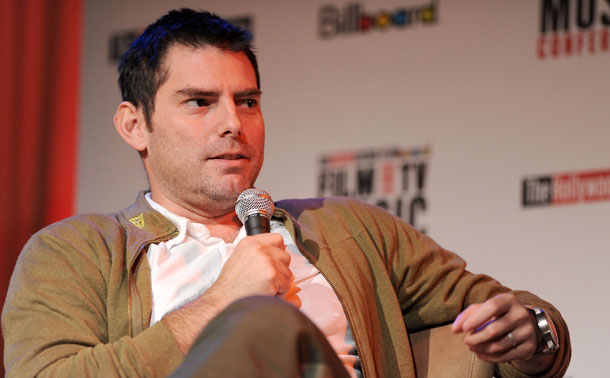 /Film: With Cinderella you were adapting a pretty well known story.Chris Weitz: Yes.When you sit down to finally do some writing, how do you go about making something that's familiar but also different enough for it to warrant itself?
/Film: With Cinderella you were adapting a pretty well known story.Chris Weitz: Yes.When you sit down to finally do some writing, how do you go about making something that's familiar but also different enough for it to warrant itself?
Yeah, it's tricky. There's a lot of responsibility because not only is it this sort of beloved story, but you know that so many young girls are gonna come and watch this film and it's going to affect them, inevitably. And you want it to be good enough that it affects them quite deeply. So how do you change it? Well I think a lot of people nowadays would look at the character of Cinderella and wonder why she doesn't fight back, why she doesn't talk back. Why she doesn't have her Stepmother arrested by Social Services.
Totally.
And so the question is, first of all, how to justify that and not make her feel like she is wimpy or a doormat? And also how to deal with the question of the Prince? And trying not to say "You should just hang around and wait for some kind of magic to happen or for a really rich and powerful guy to come and take care of you." So the key was making their relationship something that was credible and believable and not based on differences in class. And also how to understand why she would stay at home in such a sort of abusive environment. Part of that really is down to the production design and it's absolutely gorgeous with this tremendously emotionally involving place. As Dante Ferretti has designed it. And so there's every reason she would want to stay there. And also understanding her relationship with her parents and why she would stay in parental home and not run away. So all of these things kind of go into it. And then, having done that, you wanna make sure that it's not a sort of such a revisionist version. That it's recognizable as the fairy tale character.
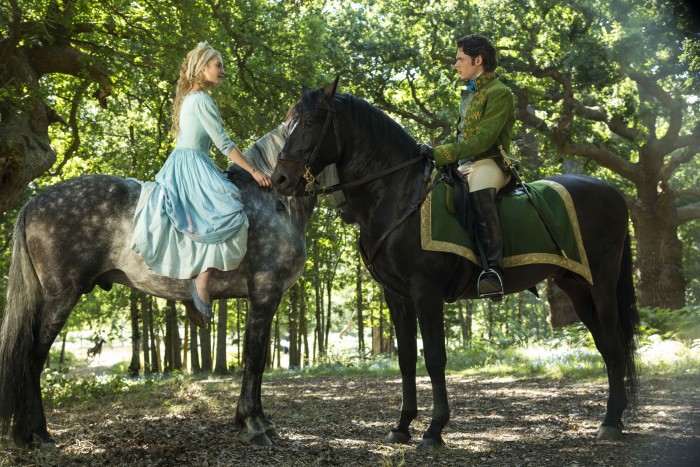 So in that, fleshing out the story and making the characters more believable, is that what leads to some of the changes from the cartoon? Like, in this version she doesn't do the chores before the ball, she meets the Prince earlier, all the things like that. Do those things sort of inform each other?
So in that, fleshing out the story and making the characters more believable, is that what leads to some of the changes from the cartoon? Like, in this version she doesn't do the chores before the ball, she meets the Prince earlier, all the things like that. Do those things sort of inform each other?
Yeah. I think everybody knows that Cinderella suffers. Absolutely. The key is how to play up her resilience in the face of that. And also her kind of sunniness and yet still give her enough self possession that a contemporary audience doesn't think she's a wuss.
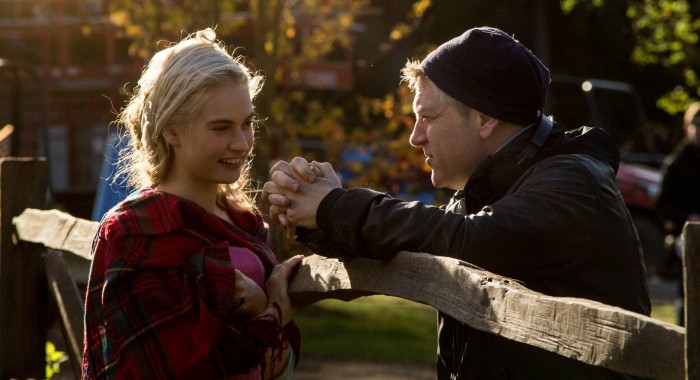 /Film: You came onto the project when Mark Romanek was still aboard?Chris Weitz: Yes.How did the project change when you switched directors? What is that like as a screenwriter when you have sort of this one thing and then a whole voice comes on board?
/Film: You came onto the project when Mark Romanek was still aboard?Chris Weitz: Yes.How did the project change when you switched directors? What is that like as a screenwriter when you have sort of this one thing and then a whole voice comes on board?
Well, it is a Director's medium, so it does change things quite a lot. However, Cinderella is one of the most familiar stories in the world. So in many crucial ways it stays the same and it's about kind of tonality. Mark's version probably would have been more like a Grimm's Fairy Tale. And Ken was very keen to make something which clearly wore its heart on its sleeve. And that was a tremendous amount of fun. Both versions were really fun to write actually. And I had a great experience with both of them.
So there were significant revisions once Mark was off?
Yes. But I gotta tell you on a movie like this, there are significant revisions all the time. Because it's such a huge industrial process. There are changes happening constantly.
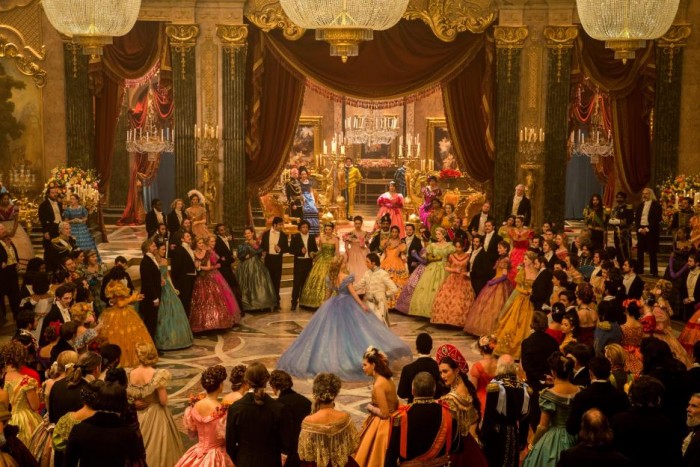 So we talked a little bit about the differences from the cartoon, but I'd think you need to have iconic moments in there: the ball, the carriage and animal transformations. How do you tackle those moments?
So we talked a little bit about the differences from the cartoon, but I'd think you need to have iconic moments in there: the ball, the carriage and animal transformations. How do you tackle those moments?
I think you refer to the animated version and, you know, I guess I would talk it over with Ken. Things change as Dante Ferretti's sets come on line and you start to understand a bit more the physical nature of the space that you're working with. Storyboards get made. And you're constantly rolling with new material and trying to take advantage of new things that are coming to pass. So when you see Dante Ferretti's sets, there are all kinds of things that you can do in them that you haven't imagined before and you understand what it's gonna look like visually.
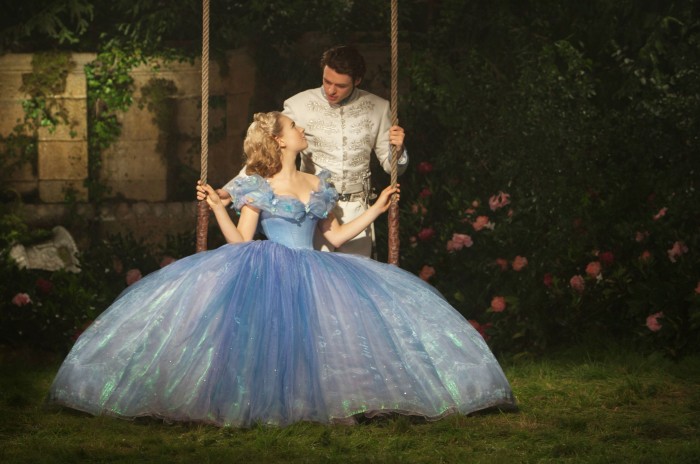 /Film: This is your first Disney movie. What was it like coming on board this iconic brand? Is it any different from working with, you done a bunch of franchises at different studios. What was it like coming aboard this?Chris Weitz: I think Disney probably has a more ingrained sense of itself as a brand and a studio than any other place. And I think they've got a tremendous sense of their sort of responsibility to the children of the world, because this is one company where you'd say that we were affected by them as children and as we become parents, we know that our children are equally going to be affected by what Disney makes. And we depend upon a certain definition of the brand and of the kind of things that they do. So there's a tremendous amount of responsibility involved in terms of what you're going to put out there under that label. They're very conscious of it. And I'm very conscious of it as well. And I think there is actually a, that sounds kind of super corporate, but there's a tremendous belief on the part of Disney people about what they're making.
/Film: This is your first Disney movie. What was it like coming on board this iconic brand? Is it any different from working with, you done a bunch of franchises at different studios. What was it like coming aboard this?Chris Weitz: I think Disney probably has a more ingrained sense of itself as a brand and a studio than any other place. And I think they've got a tremendous sense of their sort of responsibility to the children of the world, because this is one company where you'd say that we were affected by them as children and as we become parents, we know that our children are equally going to be affected by what Disney makes. And we depend upon a certain definition of the brand and of the kind of things that they do. So there's a tremendous amount of responsibility involved in terms of what you're going to put out there under that label. They're very conscious of it. And I'm very conscious of it as well. And I think there is actually a, that sounds kind of super corporate, but there's a tremendous belief on the part of Disney people about what they're making.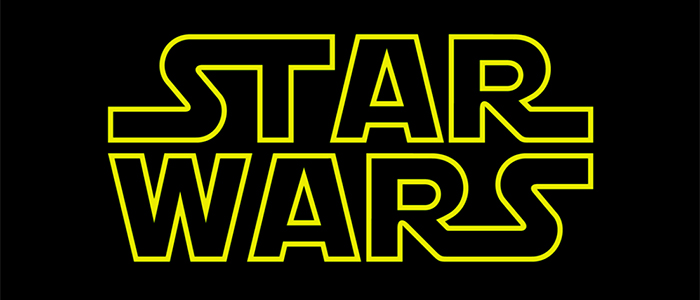 Your next project is also a Disney film, Star Wars. How did you go about getting the Star Wars movie? Because originally Gary Whitta was writing and we thought that was the core but then you came on.
Your next project is also a Disney film, Star Wars. How did you go about getting the Star Wars movie? Because originally Gary Whitta was writing and we thought that was the core but then you came on.
Well I think it still is the core. But in terms of...in a weird way, it was like meeting for any assignment. Go in, talk about how you work and talk about the idea, but of course there was A) A huge security component to it. I wasn't able to see the script until kind of after I was brought on board. And B) I saw Star Wars when I was 7 and it was a formative experience in my life, let alone in the notion of filmmaking. I'm probably only working on this stuff because I did have that experience then. But it completely possessed me when I was a child and it was a huge part of my kind of emotional make up. So I tried to be as cool as possible in these meetings while still being aware if I got the assignment I was going to be able to work on something I've been dreaming of doing.
With Cinderella, I believe you came on board and there was already and script and the same is the case this time. What are the similarities and differences, work wise, between coming on board Cinderella and Star Wars?
Um...I mean it all eventually comes down to understanding the nature of what a given film is and making the characters people who you want to be as invested in as possible. I think in this case I'm not working from a whole cloth, right? So there's a very strong structure from Gary's work and that's a huge advantage to me. But just like with Cinderella, it's a director's medium so it's really about my making what Gareth needs to do his film.
Are you still working on it?
Oh yeah.
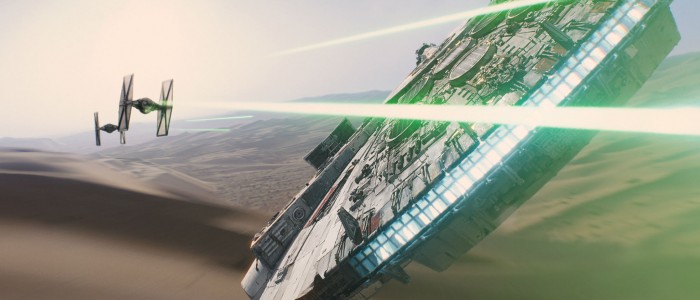 You're known has a filmmaker who does genre but genre largely based in reality. Do you think that is why you were brought aboard this film or should fans still expect a big rousing space spectacle, which is not something you're known for?
You're known has a filmmaker who does genre but genre largely based in reality. Do you think that is why you were brought aboard this film or should fans still expect a big rousing space spectacle, which is not something you're known for?
They need to expect everything because it's Star Wars. They have to. If I don't do that I'm failing in my job.
A movie like this, even more than Episode VII, is surrounded by rumors. We don't know a title, we don't know what it's about – at least we think we know – but do you read that kind of stuff and how to do react if you read something that's true and something that's false?
I try not to read it because I don't know how it would help me do the job that I have to do, which is to make the very best version of this movie possible. I think it was good to know a bit of what fans are hoping for but then again, I'm a fan as well so I know what I'm hoping for and I try to sort of take that as my lead and not get my head too occupied with what's on the Internet.
A huge thanks to everyone at Disney and Chris Weitz for this interview. Cinderella – which is quite wonderful – opens March 13.
